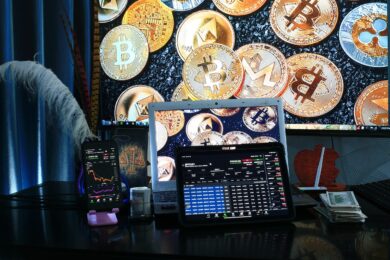
Nigeria naira news: No end in sight for NGN currency crash
- The Nigerian naira has been in a strong sell-off this year.
- The official USD/NGN pair has jumped to 952 as it approaches 1,000.
- The currency faces a rocky path ahead as concerns about the economy remains.
The Nigerian naira has been one of the worst-performing emerging market currencies in 2023 as concerns about the economy continued. The USD/NGN pair, which tracks the official rate, was trading at 952 on Wednesday, higher than its January low of 445.
On the other hand, the parallel market has been quite volatile. Data by NGN Rates shows that it was trading at 1,170. These trends mean that life for ordinary Nigerians without foreign currency savings is getting harder by the day.
The depreciating currency, coupled with the removal of subsidies, has pushed inflation to historic highs. The most recent data shows that the annual inflation jumped to 27.33% in October from 26.72% in the previous month.
Economists believe that the country’s inflation will continue rising as the Nigerian naira collapse accelerates. The situation is also being worsened by government spending. Data published this week showed that spending tose by 11% YoY in the first seven months of the year.
The Nigerian naira has also plunged because of the ongoing dollar scarcity in the country, which experts attribute to a ban on certain companies accessing dollars. Under that policy, importers were banned from accessing dollars in the official market.
Tinubu’s administration has worked to let the market determine the real value of the naira. The removal of the peg in June led to the worst single-day performance on record. While the gap between the parallel and official market narrowed initially, it has now widened.
Some analysts believe that the Nigerian naira could rebound in the coming months. For one, the energy industry is recovering as the number of rig counts in the country rise. The rigs now stand at 15, up from nine in the same period in 2022.
At the same time, oil production is rising and is now averaging 1.4 million barrels per day (bpd). Demand for this oil, especially from Europe, remains strong. Most importantly, the big Dangote oil refinery is expected to come online soon.
In an interview with FT, Dangote noted that the refinery will start with 350k barrels of oil per day and ramp up to 660k by the end of 2024. Still, the challenge is that Dangote needs oil supplies, which the NNPC has been unwilling to provide him.
The theory is that the refinery will reduce Nigeria’s import bill since the country imports most of its petroleum needs.
The Nigerian naira has also collapsed because of the rising interest rates in the United States. These rates have made the US dollar more attractive to investors. As a result, most countries in Africa are seeing both capital flight that is leading to dollar scarcity. Nigeria is also seeing weak foreign direct investments, especially in the technology sector. FDI inflows dropped by 52% to $698 million in six years to 2021. Further, the Nigerian central bank has postponed its monetary policy meeting several times, which is not a good sign.
More industry news







